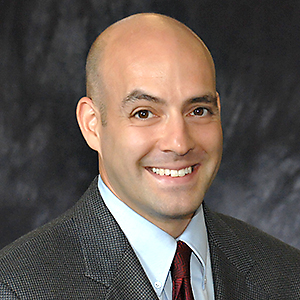A Former U.S. Envoy's Thoughts on ICC Scrutiny of the United States
I wrote yesterday in Foreign Policy about the coming ICC investigation in Afghanistan. Unless something changes dramatically in the next days and weeks, that investigation will include some allegations against U.S. personnel (alongside a much broader array of possible crimes by insurgent forces and Afghan government officials). Specifically, the prosecutor has focused on U.S. detention practices between 2003 and 2005.
Published by The Lawfare Institute
in Cooperation With

I wrote yesterday in Foreign Policy about the coming ICC investigation in Afghanistan. Unless something changes dramatically in the next days and weeks, that investigation will include some allegations against U.S. personnel (alongside a much broader array of possible crimes by insurgent forces and Afghan government officials). Specifically, the prosecutor has focused on U.S. detention practices between 2003 and 2005. Reading between the lines of the prosecutor's most recent annual update, it seems clear that the prosecutor remains unconvinced the United States has investigated these abuses fully.
The U.S. government has said little about the ICC's probe, preferring to deal with The Hague quietly. But former U.S. ambassador Stephen Rapp recently provided more fulsome thoughts on international scrutiny of U.S. abuse, and they are particularly important given the ICC's readiness to open an Afghanistan investigation. In remarks at a recent Harvard conference (the full text of which he provided to me), Rapp recounted how he responded to foreign diplomats who questioned U.S. credibility on international justice. He recalled often defending the legitimacy of the Durham examination, launched in August 2009 by Attorney General Eric Holder. But Rapp also tried to emphasize the differences in scale between alleged U.S. crimes and those typically addressed by international justice:
[T]he alleged crimes committed during US enhanced interrogations do not reach anything like the scale of these other violations. The Durham review was looking into 101 cases of alleged abuse, including those of two detainees who died in custody. A broader inquiry could increase those number, but even with the widest scope, the numbers of victims pale in comparison to those in the situations that have come before international courts and tribunals.
Out of government now, Rapp candidly acknowledged what he sees as key flaws in the U.S. response to the ICC on this issue. First, he expressed frustration with the official U.S. position that the ICC cannot exercise jurisdiction over the nationals of nonmembers:
At the Rome conference that drafted the ICC statute, the US argued that the court should not have jurisdiction over the actions of the citizens of nonparties. We lost. The ICC has territorial jurisdiction, full stop. If you read our official statements carefully you will see that we still do not legally accept such jurisdiction. When our friends understand what we are saying they react with incredulity...We need to put that argument aside, as wholly unpersuasive to those who would decide the issue. If serious crimes were committed, the winning argument is complementarity, that the US has undertaken a genuine process. This is what those allies who joined us in “coalitions of the willing” need from us—in particular those who hosted some of these sites, and now are obligated to investigate us if we are not doing it ourselves.
Rapp explained what he sees as the ICC prosecutor's likely focus as regards U.S. conduct in Afghanistan:
[I]n December 2014, the Senate Select Committee on Intel (SSCI) issued a 500-page public summary of its investigation regarding enhanced interrogation in intelligence agency detention sites that continued into 2006. Of the violations that it found, a substantial number appear to have been committed at the facility referred to as “Cobalt” or the “Sandpit,” [usually referenced elsewhere as the 'Salt Pit'] which is publicly known to be located in Afghanistan. The [Office of the Prosecutor's] preliminary examination report issued in November 2015 (after my tenure in the USG) shows that it is now focusing on whether the Durham investigation of interrogations at [intelligence community] sites constituted a genuine process focusing on “those most responsible for the most serious crimes.”
And he provided a bold recommendation for how the United States can finally address its past and remedy its credibility on international justice:
[A]s a former US Attorney, who is very proud of the US federal prosecution system, I can say that John Durham is one tough prosecutor of official misconduct. He led the case against FBI agent John Connolly for complicity in the crimes of Whitey Bulger here in the Boston area, a prosecution that sent the agent to prison for 40 years. But was his mandate on interrogations broad enough? Did he have access to all of the six million documents that it took the Senate Committee years to ferret out, and allowed it to prepare its yet unreleased 6,700 page report?
These questions can only be answered by appointment of a special counsel with the mandate and resources to review all of the now available evidence, classified and unclassified, and to proceed or not proceed based upon an independent decision as to whether there are prosecutable cases against officials at whatever level.
Until then, our leadership for human rights and international justice is not just compromised by arguments about our inconsistency. We find ourselves on the other side from our best allies and the other side from our friends at the ICC in whom the hopes of so many victims and survivors reside. At a time when mass atrocities in Syria, Iraq, and elsewhere, have made more people refugees than ever before in human history, we cannot be making arguments and taking positions that can be used by major perpetrators to escape justice. We need to fulfill our own obligations so that we can more effectively marshal the global support necessary to bring the leaders of these horrible crimes to account.




